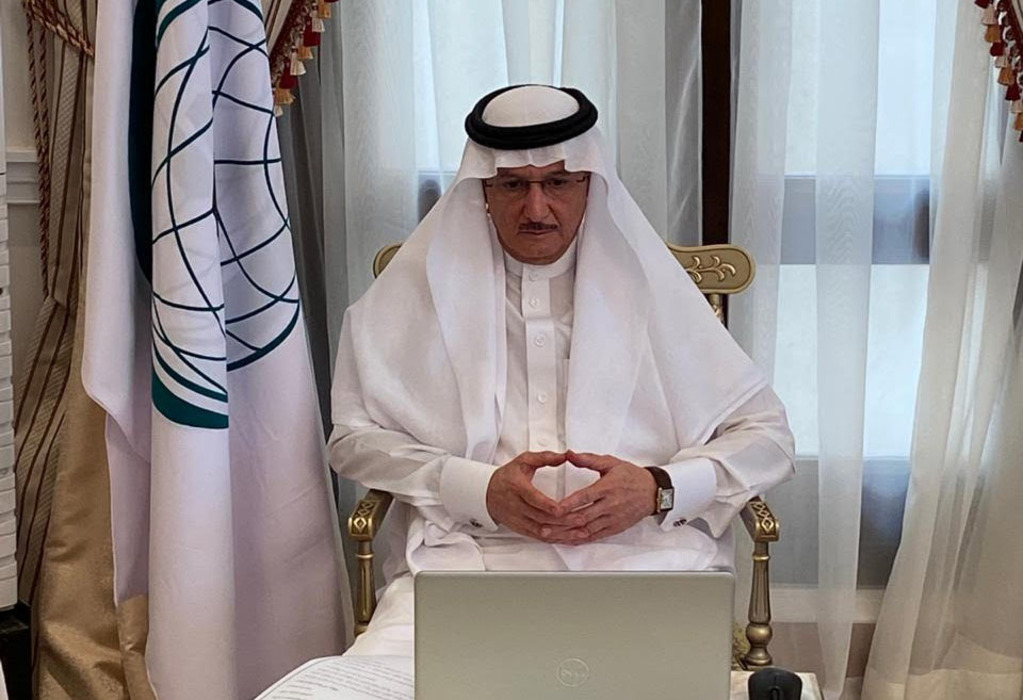
Date: 16/04/2020

Secretary General of the Organization of Islamic Cooperation (OIC) Dr. Yousef A. Al-Othaimeen, stated that the novel coronavirus (COVID-19) pandemic threatens all human beings regardless of their locations, colors, ethnicity, or beliefs, pointing out that the pandemic that has afflicted the global economy and various social spheres has also impacted the way we practice our acts of worship.
This was part of Al-Othaimeen's statement during the Second Medical Fiqh Symposium held by the OIC International Islamic Fiqh Academy (IIFA) on the 'Outbreak of Novel Coronavirus Disease (COVID-19)', on Thursday, April 16, 2020, via videoconferencing. Several physicians and Shariah experts who participated in the Symposium discussed the provisions related to pandemics, especially with the approach of the holy month of Ramadan.
Al-Othaimeen added that the timely Symposium would help reconcile the opinions of scientists and physicians on one hand and Shariah scholars on the other regarding the outbreak of the disease in a bid to formulate a harmonious position that supports the efforts of decision-makers in Member States to address the spread of the disease and mitigate its negative effects.
"One of the five imperatives enshrined in Shariah is saving lives, especially in the face of an invisible enemy, where all components of society have the duty to fight it. The participants in the Symposium have a great legal and humanitarian responsibility to explain the Shariah provisions on dealing with this pandemic, raising awareness of its seriousness, and highlighting the licenses and necessities called for in studies of Fiqh of calamities. We also need to urge everyone to adhere to the necessary preventive measures taken by governments to confront this pandemic," elaborated the OIC Secretary-General.
In the same context, it is that the extraordinary meeting of the OIC Steering Committee on Health on COVID-19 held a few days ago called on jurists and preachers to urge Muslims to follow the true teachings of Islam in terms of hygiene and adhering to the required preventive measures.
The Symposium reviewed the Shariah provisions on isolating the confirmed and suspected patients, social distancing, acts of worship, including congregational prayer, Friday prayer, and Ramadan fasting during the lockdown, personal hygiene, and the necessary precautions, especially adherence to health directives issued by the competent authorities.